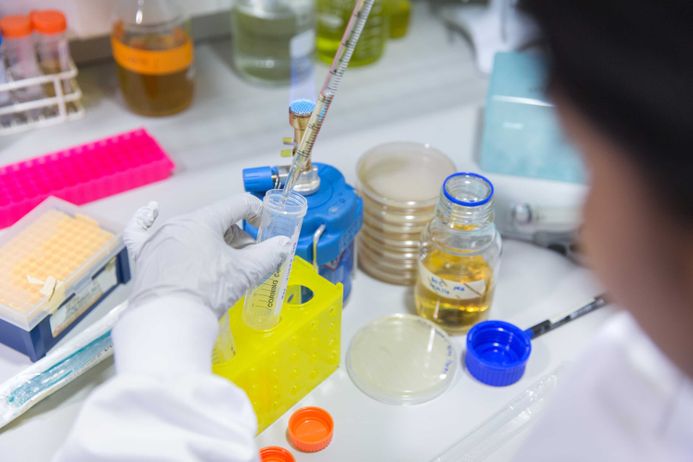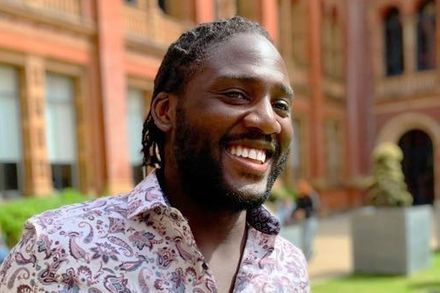I recently completed my PhD at Imperial studying asbestos cancer (mesothelioma) using the small molecules found in this disease. Now I am a Postdoctoral Researcher studying other types of lung disease and cancers. I am a London native who grew up aspiring to study at Imperial and now I have done it!
Interview with Michael
Hear from Dr Michael Olanipekun, who is studying cancer and its links to metabolism, and why he wanted to study these topics.
Education
![]() GCSE (or equivalent): Chemistry, Biology, Physics, Maths, English Literature, English Language, French, Religious Studies, Art and Design and ICT
GCSE (or equivalent): Chemistry, Biology, Physics, Maths, English Literature, English Language, French, Religious Studies, Art and Design and ICT
A-Level (or equivalent): Biology, Chemistry, Art and Design and an AS Level in Maths
Degrees:
• BSc Biochemistry, Kingston University
• MRes in Biomedical Research, Imperial College London
• PhD in Clinical Medicine, Imperial College London
Detail about Michael
My research
I study small molecules (metabolites) to investigate various diseases such as cancer, heart disease and asthma. Metabolites have important roles in human health and can tell us much about a disease.
My inspiration
Growing up, I spent a lot of time in hospitals. Rather than aspiring to be like the medical doctors that treated me, I wanted to understand the science behind the treatments.
Who is your STEM hero?
Sidney Farber, a pathologist known as the father of chemotherapy. His research was focused on curing childhood cancers with chemotherapy and has had a big impact on many other diseases.

Most significant discovery/invention?
The microscope, an invention so pivotal to science that it has been improved over multiple centuries! This invention has shown us cellular structures, micro-organisms and even single molecules!

Career options after study
- Scientist (computational) in the Pharma Industry
- Biotech start-ups
- Consultancy
- Patent law
- Education
- Medical writing

My hobbies
I spend my free time playing video games, watching anime, cycling and taking and editing photos.
Michael talks about his research
Michael talks about his research into metabolism in human health and disease.
Learn more about others working in this area
Outreach Newsletter
Sign up to our newsletter and mailing list for updates about Outreach events and activities.



